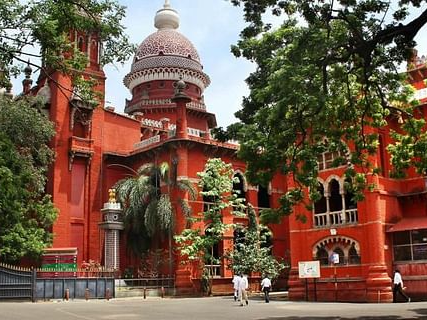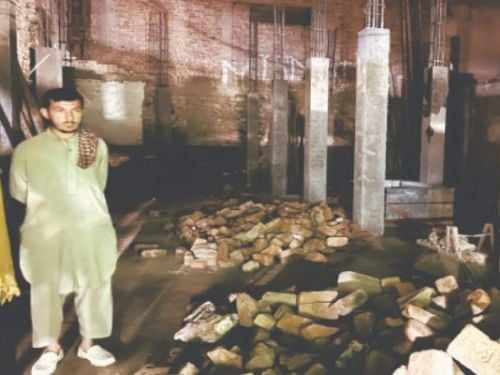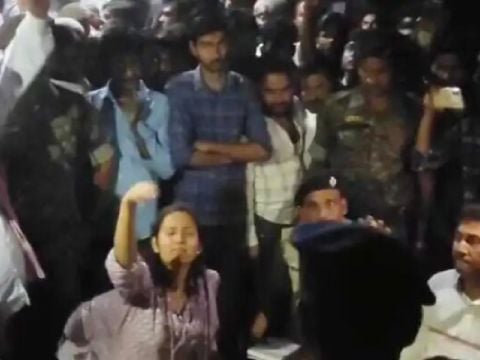
The Tamilnadu government gave the Madras High Court an undertaking that it would not appropriate the excess temple funds to build senior citizen homes at three places in the state.
The government submitted the undertaking before the bench of Justice GR Swaminathan and Justice Senthilkumar Ramamoorthy while responding to a public interest writ petition filed by the President of Indic Collective Trust and the Temple Worshippers Society, Mr T.R Ramesh challenging the government order issued by Tourism, Culture, and Religious Endowments Department on January 12, pursuant to the announcements made during the Budget Session of the Tamilnadu Assembly in 2021-2022. The government order said, “In Chennai, Pazhani, and Tirunelveli, senior citizens’ homes with all amenities will be commenced at Rs 5 Crores.”
The petitioner submitted the plan to build homes for senior citizens at Sri Dhandayuthapani Temple in Palani for Rs. 15.2 crore, Sri Kanitmati Sameta Sri Nellaiappar Temple in Tirunelvelli at a cost of Rs. 13.5 crore and at Sri Devi Baliamman and Sri Ilangaliamman Temple in Villivakkam in Chennai for Rs. 16.3 crore utilizing the commissioner’s common good fund and donor funds was illegal.
The petitioner also submitted that none of the three temples in these areas have a board of trustees and the functioning of these temples has been carried out by a government fit person and government officers who have been holding the posts illegally. The petitioner also drew the attention of the court to the fact that these interim appointees cannot take major decisions with regard to the Temples and in the absence of any validly constituted Board of Trustees, no major policy decisions can be taken. Utilizing crores of rupees out of temple funds would amount to a major policy decision and therefore ought to be halted.
It was further said in the petition that sections 36,36-A and 36-B of the Tamilnadu Hindu Religious and Charitable Endowments Act, 1959 specifies the utilization of the surplus funds. According to section 36, the trustees of religious institutions may appropriate any portion of the accumulated surplus of temple funds for various purposes listed in section 66 of the same act. For utilization of these funds, a proposal should be made by a trustee; public notice of such notice should be published to invite suggestions and objections from the persons interested within a period of 30 days.
Approval of the commissioner to utilize the funds for specific purposes is only after completion of these steps. The specific purposes of utilizing the funds as mentioned in the law do not include the construction of senior citizens’ homes. The petitioner contended that, therefore, the order is illegal.
Advocate General R Shunmugasundaram represented the Tamilnadu government. He assured the Madras High Court that the scheme will not be implemented for six weeks. He said, “no appropriation from any source pursuant to the impugned Government Order will be made for a period of six weeks.”
Source : OpIndia

 Chhattisgarh: Naxal top commander along with 28 other Naxals killed in a joint operation
Chhattisgarh: Naxal top commander along with 28 other Naxals killed in a joint operation Andhra Pradesh: Farooq kills mentally challenged Hindu man for insurance money
Andhra Pradesh: Farooq kills mentally challenged Hindu man for insurance money Pakistan: Ancient Hindu temple in Khyber Pakhtunkhwa demolished for commercial complex
Pakistan: Ancient Hindu temple in Khyber Pakhtunkhwa demolished for commercial complex 2 ISIS terrorists arrested in Germany for sexual abuse of minor Yazidi children
2 ISIS terrorists arrested in Germany for sexual abuse of minor Yazidi children China, not India, interfered in 2019 and 2021 Canada elections, says Canadian panel
China, not India, interfered in 2019 and 2021 Canada elections, says Canadian panel Bihar: Goddess Bhagavati Temple in Araria vandalised and deities damaged
Bihar: Goddess Bhagavati Temple in Araria vandalised and deities damaged